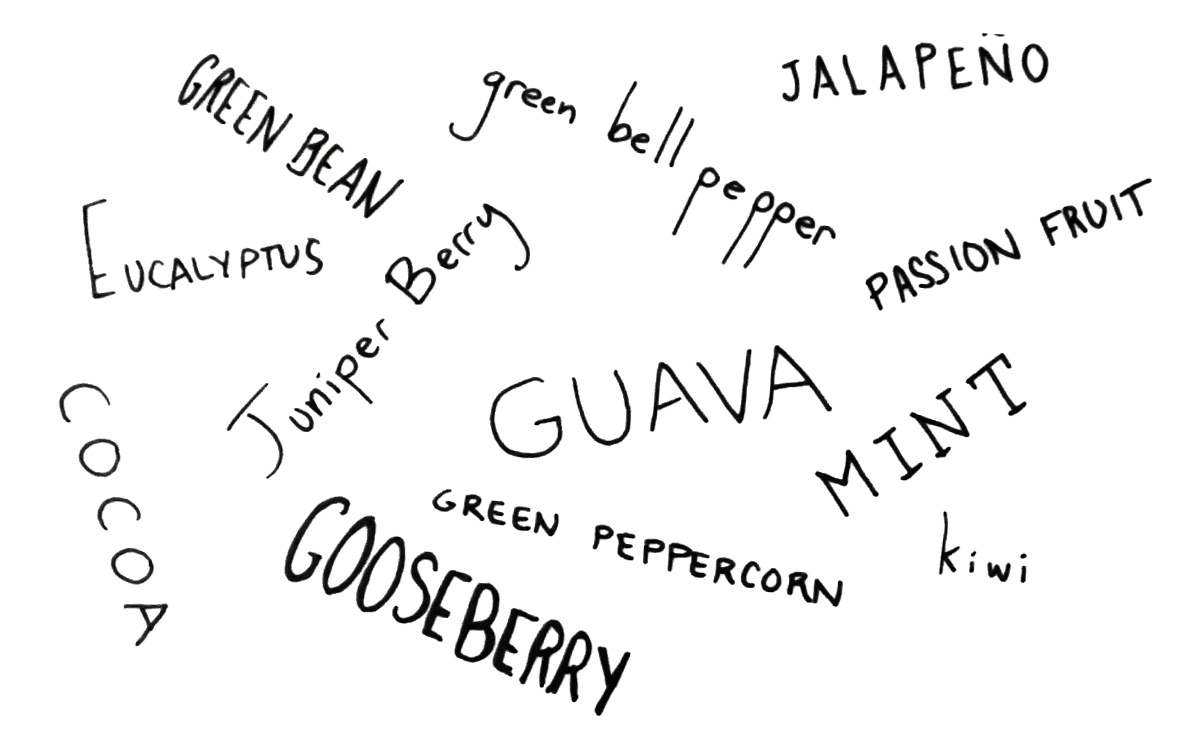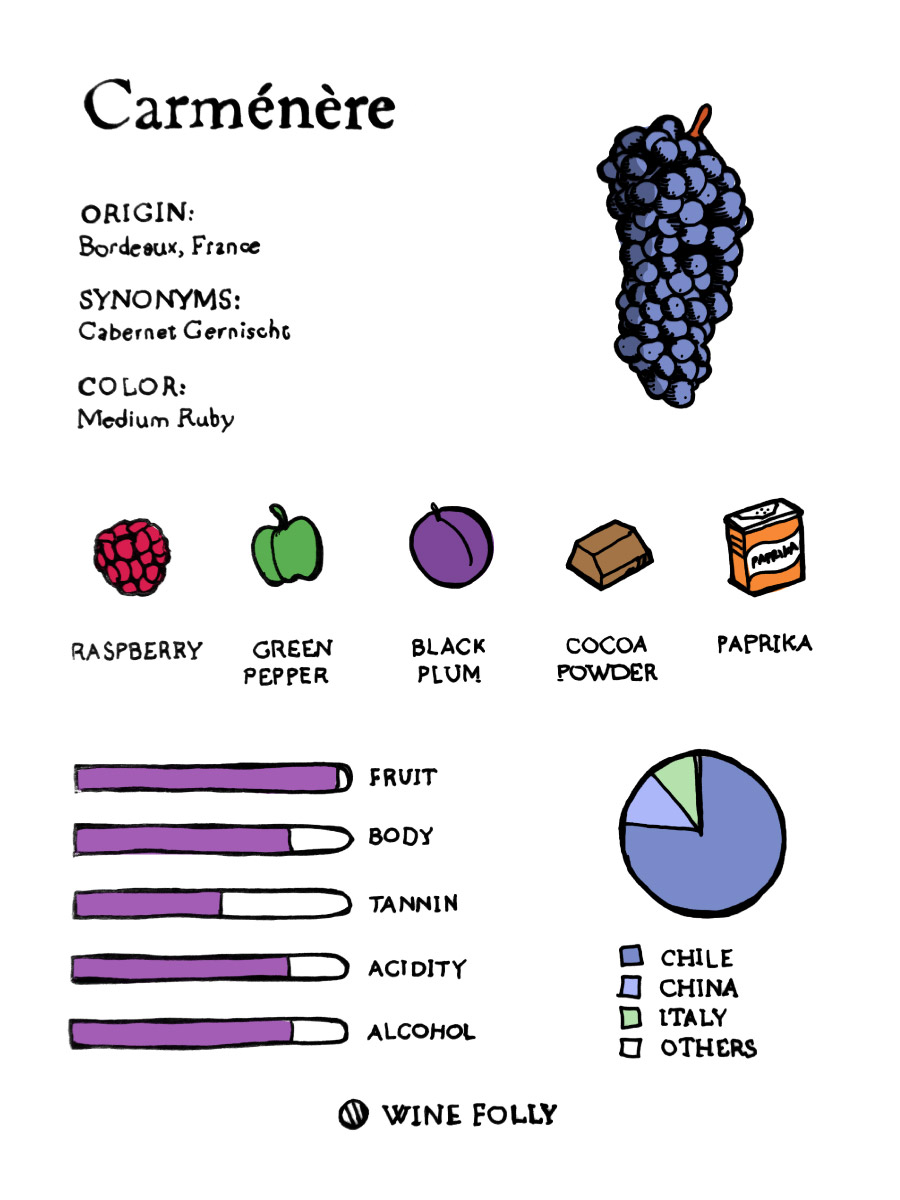This month we’re taking a closer look at the red grape, Carménère. Those of us who love savory things and yearn for wines outside of the “fruit-bomb” spectrum will love what Carménère has to offer. Carménère is found mostly in Chile, is related to Cabernet Sauvignon and Merlot, and has a higher prevalence of a special aromatic compound (Pyrazine), which adds a unique herbaceous quality to the taste.
You probably noticed in the infographic above that Carménère is often noted for having flavors of green bell pepper. The smell is derived from aroma compounds referred to as pyrazines which are prevalent in just a few wines (primarily the “Bordeaux” varieties). Pyrazine can display itself in the flavor of wine in a great many ways:

Pyrazines in wine are called “impact compounds” because they’re associated with specific grapes (Bordeaux varieties). Learn more.
Try it Yourself
If you’re interested in improving your nose and ability to blind taste wine, you can create your own tasting to practice identifying this flavor. There are three wines which have exceptionally high levels of this compound, and they include Carménère, Cabernet Franc and Sauvignon Blanc!
Create Your Own Comparative Wine Tasting
We created a set of tasting mats that will help you assess wine and create your own wine tastings. The set includes mats for up to 80 wines, instructions on how to create a tasting, as well as a wine aroma wheel.


